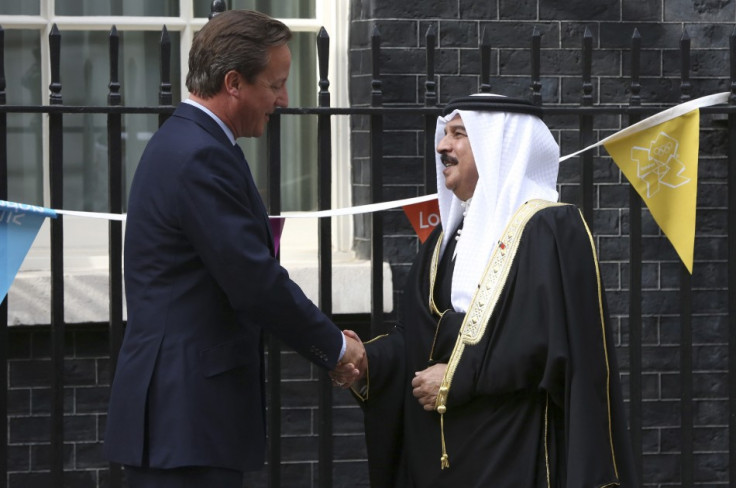EXCLUSIVE: Bahrain Hits Back at MPs Over F1 Grand Prix Boycott

Bahrain's Information affairs authority harshly responded to MPs that criticised the government for failing to boycott the Formula One Grand Prix in Bahrain over human rights concerns.
The Commons foreign affairs committee (FAC) published a report that slammed the government for holding double standards on human rights issues.
"We find it difficult to discern any consistency of logic behind the government's policy in not taking a public stance on the Bahrain Grand Prix but implementing at least a partial boycott of the 2012 Uefa football championship matches played in Ukraine," the committee said.
FAC also criticised the Foreign Commonwealth Office for not listing the Gulf kingdom on its list of "countries of concern" in the aftermath of the "brutal" crackdown on pro-democracy protests in 2011.
A spokesman for the Bahrain's Information affairs authority told IBTimes UK that the country "strongly object" to the allegations. He also stated that the relationship between Bahrain and UK "is not under strain" as the case deals with MPs and not with the government.
"We feel the British Government were not lenient in their stance, but criticized the Government Kingdom constructively, and made the right decision in leaving it up to the organizers to have the final say," Salman H. AlJalahma, media attaché for the Authority, said.
Another spokesman noted that every nation that hosts the Formula One race has faults.
"We firmly believe that sports should remain separate from politics and obviously the FIA felt the same way because they voted unanimously to proceed with the race in Bahrain," he said.
Aljalahma claimed that the Bahrain Grand Prix "did not set back the Government's steadfast push towards reform and reconciliation".
Government diverting?
However, Bahrain opposition argued that the government is trying to divert from the main points of the report by speaking specifically about the Grand Prix.
"The report rightly questions the hypocrisy of the UK Government on boycotting some events whilst supporting the Grand Prix, but that is just one claim of a report that highlights many more criticisms of the Bahrain," Dominic Kavakeb, political strategist at Bahrain Justice & Development Movement, told IBTimes UK.
"Notably the report criticises the pace of reforms in the country, arguing that there has been a lack in implementation of the Bahrain Independent Commission of Inquiry."
He cited "growing concern" among Bahrain allies about the country's human rights record and willingness to implement reforms.
Britain came under pressure in April to back calls for a boycott of the Formula One grand Prix amid fears that it could trigger a new clampdown on pro-democracy protesters. Cameron argued that "Bahrain is not Syria" and reforms were under way.
The FAC opened an inquiry to look at how the UK deals with Bahrain and Saudi Arabia on issues such as defence, trade, security, counter-terrorism and human rights.
Britain has recently signed a defence agreement with the Gulf Kingdom to "bolster Bahrain's security with regards to its regional standing, as well as its internal stability".
© Copyright IBTimes 2024. All rights reserved.






